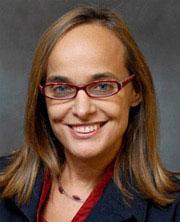February 28 marks Rare Disease Day, which aims to increase awareness of rare diseases and disorders.
While each condition affects a relatively small number of people, there are currently between 6,000 and 7,000 rare diseases according to Orphanet, an online rare disease reference portal.
And the unmet need for research is significant. Less than 5 percent of rare diseases have a treatment, according to the National Center for Accelerating Translational Sciences (NCATS).
Supporting University research focused on rare diseases
CTSI’s Office of Discovery and Translation (ODAT) is helping to advance this important research through a recently released funding opportunity to support the development of diagnostics and treatments for rare diseases. The Translational Grant Program, which helps University of Minnesota researchers translate basic science discoveries into patient benefit with the ultimate goal of improving human health, will focus this year’s annual RFA on rare diseases.
In addition, ODAT collaborates with The Pediatric Device Innovation Consortium (PDIC) to support University researchers who are finding better devices and solutions to help children, including those suffering from rare diseases.

“While rare diseases only affect a select small group of people, treating these conditions can have an incredible life-saving impact,” says Gwenyth Fischer, MD, Assistant Professor, Clinical Advisor for the Medical Devices Center, and director of the PDIC. “In many cases, we have the opportunity to alter the course of people's lives.”
Exploring a new way to help kids with adrenal insufficiency
One way PDIC and ODAT have teamed up to advance rare disease research is by supporting the efforts of University Associate Professor Kyriakie Sarafoglou, MD, as she explores better ways to help children with adrenal insufficiency.
Kids with this rare condition lack intrinsic steroid production, so simple childhood illnesses can cause them to get very sick and even become life-threatening.
To help prevent serious complications when children with adrenal insufficiency are experiencing illness parents give their child an intramuscular injection using manually drawn-up steroid medication. But using a large needle to deliver steroids is prone to error and scary for kids and parents alike.

Dr. Sarafoglou, who treats these patients and is an expert on steroid therapy for adrenal insufficient children, wanted to create a better solution.
She approached the PDIC-ODAT team with a new idea for delivering the medication, and ever since, they’ve been collaborating to explore its potential. Together, they’re creating a development plan with steps such as evaluating all possible solutions, collecting data from families, finding funding, and looking ahead toward specific regulatory and commercialization tasks.
Taking an outside-the-box approach
The collaborative PDIC-ODAT group’s broader focus on pediatric technologies positions them to tackle the unique challenges of developing devices to help patients suffering from rare diseases.
The collaborative PDIC-ODAT group’s broader focus on pediatric technologies positions them to tackle the unique challenges of developing devices to help patients suffering from rare diseases.
Medical technologies for children and rare disease patients both typically represent a smaller market, and call for a more outside-the-box approach to development. For example, compared to devices designed for larger patient groups, venture funding and other resources are less likely to be available.
One way the PDIC-ODAT team helps smaller market technologies surmount inherent challenges is by addressing late-stage commercialization issues earlier in the development process. To do this, they assemble an expert board of advisors from both industry and academia that can help these emerging technologies overcome hurdles ranging from reimbursement to regulatory issues.
Helping University faculty members develop new medical technologies
The PDIC-ODAT team’s support for Dr. Sarafoglou is one example of how they are working with University faculty members to explore feasible ways to improve how parents deliver medication to kids at home. This is one of the PDIC-ODAT team’s many initiatives for accelerating the development of new medical technologies for children.
University inventors with ideas for pediatric medical technologies or projects are encouraged to attend ODAT-PDIC Office Hours to receive initial feedback and guidance from its expert team. To schedule a meeting contact PDIC Program Manager Jodi Fenlon Rebuffoni at [email protected] or 612-626-6945.
